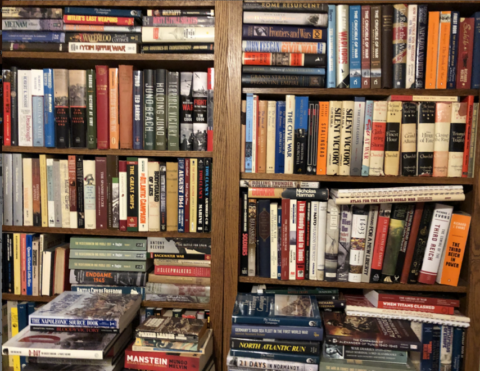For the record, I don’t think this kind of cultural regulation is a good idea to start with, but as Ken Whyte points out, if staving off foreign ownership was the primary intent, could it have failed any more comprehensively than this?
Sometime last year, the Association of Canadian Publishers, which represents most of the independent book publishers in English Canada (Sutherland House is not a member), began discussing a radical — some might say dangerous — new form of regulation for the Canadian book industry.
The ACP started from the reasonable position that the existing federal approach to regulating the Canadian book industry has failed. That approach is to encourage a Canadian-owned book sector and, ipso facto, to discourage foreign ownership of Canadian publishing. Successive Canadian governments, Conservative and Liberal, have paid lip-service to the policy and failed to enforce it. The multinational publishers — Simon & Schuster, Penguin Random House, HarperCollins — have moved into Canada in a big way. Great chunks of the Canadian-owned industry, including McClelland & Stewart and Harlequin Books, have been sold to foreign buyers.
The multinationals now account for about 95 or 96 percent of book sales in Canada. All but the last 5 or 6 percent of their revenue comes from sales of imported books, most of them produced in the US or UK.
The Canadian-owned component of the book sector, which produces the vast majority of Canadian author books, has shrunk to about 4 or 5 percent of the market and sales of Canadian-authored books, says the ACP, have “flatlined”.
So you can see why the ACP is interested in a new approach: for more than half a century, while pursuing an official policy of encouraging Canadian-ownership, our government has managed to hand almost the whole of our book industry to foreign-owned firms.
I, too, am interested in a new approach. It’s the ACP’s next step that worries me.
The ACP has been watching over the past couple of years as the federal government rewrites its Broadcasting Act. The thrust of Bill C-11 is to bring foreign-owned streaming services operating in Canada — the likes of Netflix, Apple, YouTube — under the jurisdiction of the Canadian Radio-televison and Telecommunications Commission (CRTC). The bill would grant the CRTC the power to impose on streaming services the same rules it imposes on the likes of CTV and Global and the companies that own them. It would compel streamers to use Canadian talent, abide by Canadian diversity requirements, prioritize Canadian content on their platforms, and give a percentage of their revenues to a fund to support the production of Canadian content.
It has occurred to the ACP that no one in government is asking foreign-owned book publishers to abide by Canadian content quotas or to deliver percentages of their revenue to a fund to support Canadian-owned book producers: “The absence of a CRTC or related regulatory body, along with the policies and programs that such a body can enact, has meant that non-Canadian firms enjoy unfettered access to the Canadian marketplace.”
That’s not quite right. Non-Canadian firms dominate Canadian publishing because the feds won’t enforce their existing policy, not because we don’t have a CRTC for books. In any event, the ACP is embracing the spirit of Bill C-11.
Oh, goody! Government bureaucratic oversight is bound to make Canadians more interested in reading Canadian books, right? I see no way that this could possibly fail.






